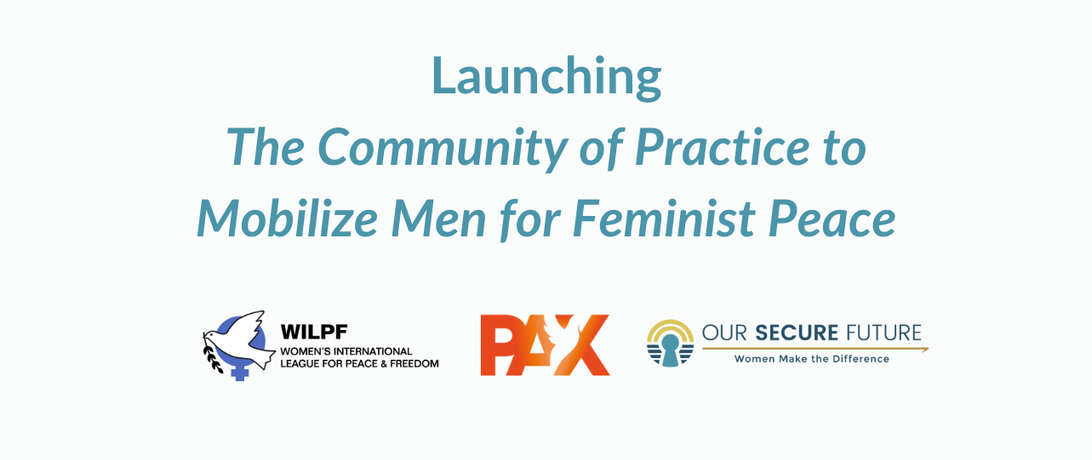The Community of Practice to Mobilize Men for Feminist Peace was launched in February 2024 as the result of a two-year consultative process led by the Women’s International League for Peace and Freedom (WILPF) and PAX for Peace. Our Secure Future has been represented throughout this process by Ambassador Don Steinberg, executive director of Mobilizing Allies for Women, Peace and Security. Reports are available from the consultative meetings held in 2021 and 2023.
Participants in the Community of Practice include groups from Africa, the Middle East, Europe, and the Americas that have long-standing commitment to and expertise in peacebuilding, masculinity, violence, and conflict.
Dean Peacock, Director of the Countering Militarized Masculinities Initiative at WILPF, said, “We come together to learn from each other about how we can best increase men’s support for the Women, Peace and Security Agenda to advance women’s rights, peace and democracy. Among the challenges we are addressing are promoting non-violent and demilitarized responses to conflict escalations, resisting authoritarianism and patriarchal populism, and shining a spotlight on the structural drivers of violence and conflict.”
Ilse Wermink, PAX Policy Advisor on Gender, Peace and Security, added, “The Community of Practice will provide a platform for connection and support, brainstorming joint research, sharing research in many stages of development, identifying and discussing lessons learned, building partnerships, and facilitating the planning and implementation of future actions.” The Community is developing a full plan of action for advocacy, projects, movement building, and support for studies on militarized masculinities, feminist security and foreign policy, and the structural drivers of violence and conflict.
“A key reason most peace processes now fail within the first few years is that they don’t involve the whole of society in the process,” said Ambassador Steinberg. “Ceasefires, peace accords, and post-conflict reconstruction are dominated by the male combatants, and yet it is women, people with disabilities, displaced persons, the LGBTQI+ community, and other marginalized groups who suffer most when conflict emerges. Equally important, these groups are essential to addressing the root causes of conflict and building just, inclusive and durable peace.”
For additional information on the Community of Practice, please contact us at [email protected], [email protected], or [email protected].
